Public Service Broadcasting:
Public service broadcasting refers to TV programmes in which are broadcast for the public to benefit from and view, rather than setting out to be ran purely for profit. These general consist of factual programmes and religious programmes however, they can also feature various shows for entertainment aswell.
An example of a Public Service Broadcasting station in the UK would be the BBC as all their shows are not made for profit and any adverts ran in between shows are strictly only to show what's on their channel and no profit based advertisements.
Source - http://ask.ofcom.org.uk/help/television/what_is_psb
Commercial Broadcasting:
Commercial broadcasting refers to channels in which run to make a profit as their sole aim, whether this be through the use of advertisements in their shows, whether this be through product placement, or full on advert breaks during the middle of their shows and in the gaps between one show ending and the next one beginning. They also obtain money through subscription based packages and pay per views so that the viewer can obtain more than they are usually able to.
An example of commercial broadcasting in the UK would be Sky and the extra channels they have to access and the ads that run in-between the shows to make a profit from their viewers.

Source - http://www.acma.gov.au/Industry/Broadcast/Television/List-of-TV-broadcasters/primary-commercial-television-broadcasting-services-television-acma
Corporate Ownership:
Corporate ownership refers to when a company is owned by a number of owners who turn a business into a corporation, in which is a distinct legal entity. The business then gets a name and takes on the rights and responsibilities that private individuals enjoy. A corporate ownership allows a business to survive even if the owner/owners die, this is due to the fact that the structure of them allows other people to take over and keep the company running.
An example of a Corporate owned business in the media would be: The Walt Disney company as they own a lot of other pieces of media aswell as their own entities and even though the creator and founder has died, the company still lives on.

Source - http://www.investopedia.com/terms/c/corporation.asp
Private ownership:
Private ownership refers to a property or entity being owned by a private individual or organization rather than the government or public body, this private structure. An example of someone in the media who uses private ownership would be: Megan Ellison as she privately owns her own productions work and benefits solely from it.
Source - http://www.investorwords.com/10703/private_ownership.html
Global companies:
Global companies are companies in which have stations all across the world, whether this to be for a profit or just to share news to different sectors of the world. An example of this would be: The BBC as it has stations worldwide to not only share the news to Brits whilst they are abroad but to also showcase news which is specific to different countries.
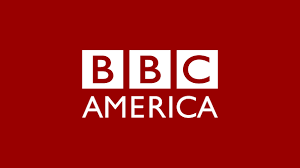
Source - http://www.ask.com/world-view/definition-global-company-d1ddb451d2832bb8
Vertical integration:
Vertical integration is the merger of a company at different stages of its production and or it's distribution in the same industry
When a company acquires an input supplier this is called backward integration. On the other hand, when it acquires another companies distribution chain this is then called forward integration.
An example of Vertical integration in Television is through Sky television, as it has its sectors staggered throughout different channels and different sectors within these channels, For example, they have channels in the sports sector but also in the movie and news sectors aswell so they are on a large, broad basis.

Source - http://www.businessdictionary.com/definition/vertical-integration.html
Horizontal Integration:
Horizontal integration or Monopolization refers to when someone or a company owns more than one or more channels in a sector or over more than one or two mediums for example: Owning a newspaper and a Television channel, due to owning more than or more mediums in media, a prime example of this would be: Rupert Murdoch who owns many different news platforms in the Brittish media.
Source - http://www.businessdictionary.com/definition/horizontal-integration.html
Funding types:
The licence fee:
A licence fee is an annual fee in which people have to pay to access public service broadcasting, this allows them to view at their own will with no troubles after paying their annual fee, if this is not paid then the person can be fined as it is against the law.
Source - http://www.investopedia.com/terms/l/licensing-fee.asp
Subscription:
A subscription is something in which an individual pays either annually or monthly, to access some forms of media, either through a streaming service or through receiving physical copies to use at their own will until they send it back. A p;rime example of this would be through sites such as: Netflix in which they can view as much content as they wish for the monthly fee.

Source - http://www.thefreedictionary.com/subscription
One off payment to own a product:
A one off payment to own a product is when a person purchases something to use for as much as they want, for as long as they want for a set fee.
There are many ways in which this can happen, and it's the most common way of obtaining an item, this usually happens in a store, however, it can happen when purchasing something second hand.
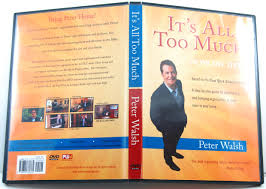
Source - http://www.investorwords.com/10466/one_off.html
Pay Per View:
A pay per view is a show/movie/event in which a person pays every time they watch it, this is generally the case with either movies or sporting events in which has a lot of importance.
An example of this would be: Wrestlemania, an event which happens once a year and millions of people globally pay to view it for a one off
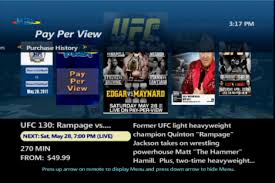
Source - http://www.businessdictionary.com/definition/pay-per-view-PPV-television.html
Sponsorship:
A sponsorship allows a piece of media to be made and paid for with no fee or a relatively low fee due to a third party sponsoring the piece they will gain publicity in return so it's a handy way for both parties to achieve what they ultimately want to achieve, this allows people with low budget to finalise their work in a way in which they want to.
An example of this would be before Emmerdale a candle company sponsors them and therefore gets around 2 minutes of advertising every episode in return for funding the programme.
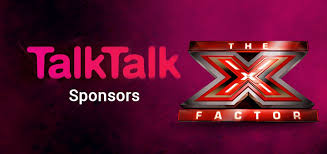
Source - http://www.businessdictionary.com/definition/sponsor.html
Advertising:
Advertising is something in which people or companies can pay for to get their name out to the general public, these are a mainstay in modern media, featuring on Radio, Television and Film, the advertising slot has a fee, this depends on the date they want, the time and the length of the advert, this is a way of earning filmmakers and Television broadcasters money and helping a company to get their way out to the public in a more effective way and in your face way than Sponsorship.
An example of this would be adverts that run throughout Television breaks
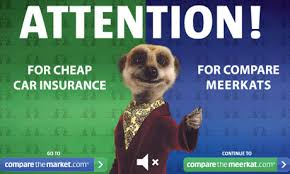
Source - http://economictimes.indiatimes.com/definition/advertising
Product Placement:
Product placement is when a company or brand pays to have their product featured in a film or TV Show, this is done to get the brand out there in a way in which it is visible in a real life scenario, this works subconsciously so the viewer craves/wants the product on screen, this can also be used to help fund the piece of media as the company pays money to have their item on screen which in turn helps to fund the product so this way helps both parties to achieve what they intend to greatly.
An example of this would be: Coca - Cola being used as the only drink in a film
Source - http://whatis.techtarget.com/definition/product-placement
Private Capital:
Private capital is something in which a person owns singularly with the intention of having its price rise or to make profit from it, it may be one or two friends or family with them to make the investment, but ultimately the aim is to make money and benefit from this, in media this may be owning a television company or a set of companies in which the person is looking to make a sum of money from.

Source - http://www.investopedia.com/terms/p/privateequity.asp
Crowd funding:
Crowd funding is a fast growing way in which new people and companies are able to realise their dreams and create what they want to create thanks to the general public, they use these to fund money as they have no other way to make money, the public can donate anything from £10 all the way to £10,000 if they want to help the idea further and make someone's idea a genuine reality.
An example of crowdfunding would be: The website Kickstarter, in which people upload their concepts and ideas.
Source - http://www.forbes.com/forbes/welcome/
Development Funds:
A development fund is the process of growing a product and developing it further, the funds are made available to people via a manufacturer or brand these help their affiliates to create what they want. This happens through people putting money into something and receiving publicity in return.
An example of this would be: A company owner funding a whole movie so their product can be a main stay of the feature.
Source - http://www.marketing-playbook.com/glossary/index.php/term/%26%23160%3B,Marketing+Development+Fund.xhtml
Ellis,
ReplyDeleteYou have defined and explained or found examples for the different ownership concepts and sources for funding.
You need to add a reference list to show where you got your information.
Ellie